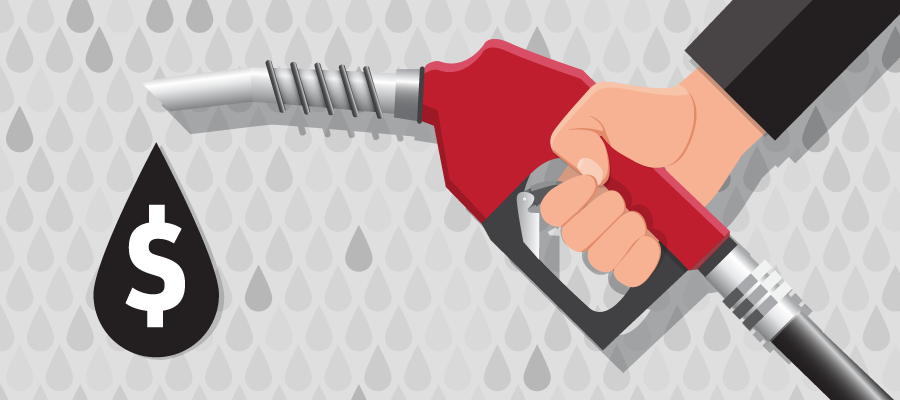Gas prices and consumption: BC vs Pacific Northwest
On a weekend getaway to Washington state, I was alarmed at how much cheaper gas prices are south of the border. Typically, we paid $3 per gallon, whereas the price in Vancouver upon our return was $1.16 per litre, which is $4.39 per gallon (with the exchange rate roughly parity over the weekend).
This is an astonishingly large price difference, and has something to do with the fact that British Columbians consume 25% less gas per capita than the Northwest states, according to a new report from the Sightline institute (295 gallons per capita last year for BC compared to 392 for the NW states). Price is not the whole story here: urban planning and public transit in Vancouver are more conducive to reduced fuel consumption.
The bad news is that in spite of these high prices, BC gas consumption per capita increased by 10% in 2009 over a year earlier. This is cherry picking somewhat because at 270 gallons per capita in 2008 this was the lowest consumption had been since the 1990s (see the Sightline report’s appendix). The price spike of 2008 figures large in that swing, as gas prices in Vancouver peaked in July 2008 at over $1.50 per litre. The state of the economy another factor, plus one-time events like the Olympics (helicoptering in snow, for example). The full data series going back in time is not available in the report but that 295 gallons per capita in 2009 was higher than any year going back to the 1980s.
The difference in prices between BC and NW states is essentially due to taxes. Interestingly BC’s carbon tax, which was 2.3 cents per litre for the first half of 2009, and 3.4 cents for the second half is but a small contributor. Other taxes figure in as well, with BC fuel taxes of 17.83 cents per litre (including the carbon tax) plus a regional tax of another 9 cents per litre. There is a federal excise tax on gasoline of 10 cents per litre, plus GST on the whole thing. Some of these taxes go toward supporting transit in the region, through the gas tax rebate to municipalities federally and a portion of provincial and regional taxes, too.
So as one might guess, higher prices reduce consumption. It makes sense for those tax revenues to fund transit infrastructure and services (and bike infrastructure, too). But even though many low-income people do not drive, there is a regressive impact at the bottom that should be resolved with larger income transfers to those families. There is interesting Statscan table that shows that households with incomes under $20,000 emit only one-third of greenhouse gases per person for driving compared to households with incomes over $20,000. Emissions/consumption is relatively flat after that but the highest income group in the table, over $100,000 per year, emit more – about 12% more.
Fixing things for auto-dependent households (who may need to live in the suburbs in order to afford a decent home) is more than an electric car away – it is a long-term challenge related to creating more affordable housing in central cities, and more compact communities where there are currently suburbs. With longer-term structural changes, the need to own a car would be greatly diminished, but this will take both time and money. So on balance, though, gas prices should continue to rise, and as we do so we need to divert a reasonable share (I argued for half the carbon tax, so perhaps as much as half of all fuel taxes) to low- to medium-income households.
Topics: Climate change & energy policy, Poverty, inequality & welfare, Taxes


